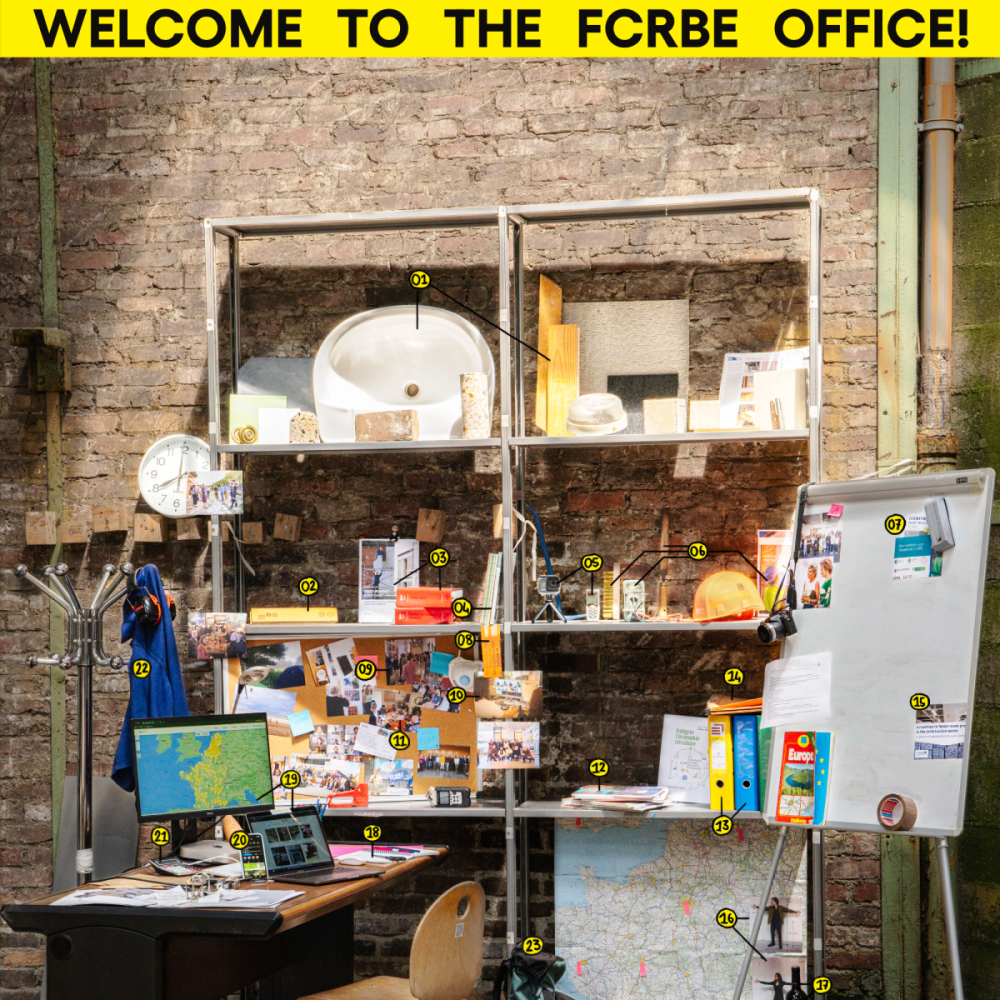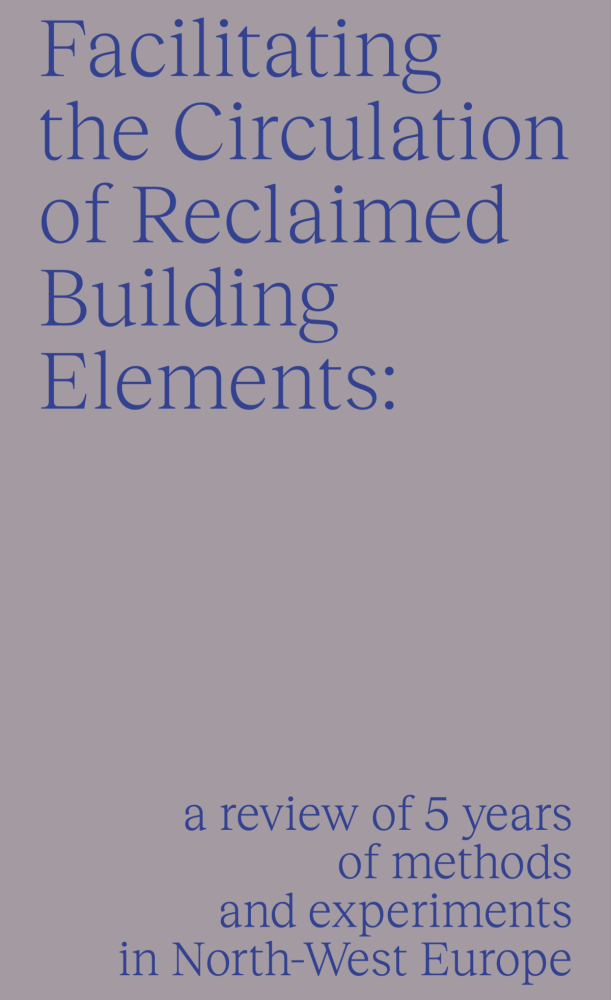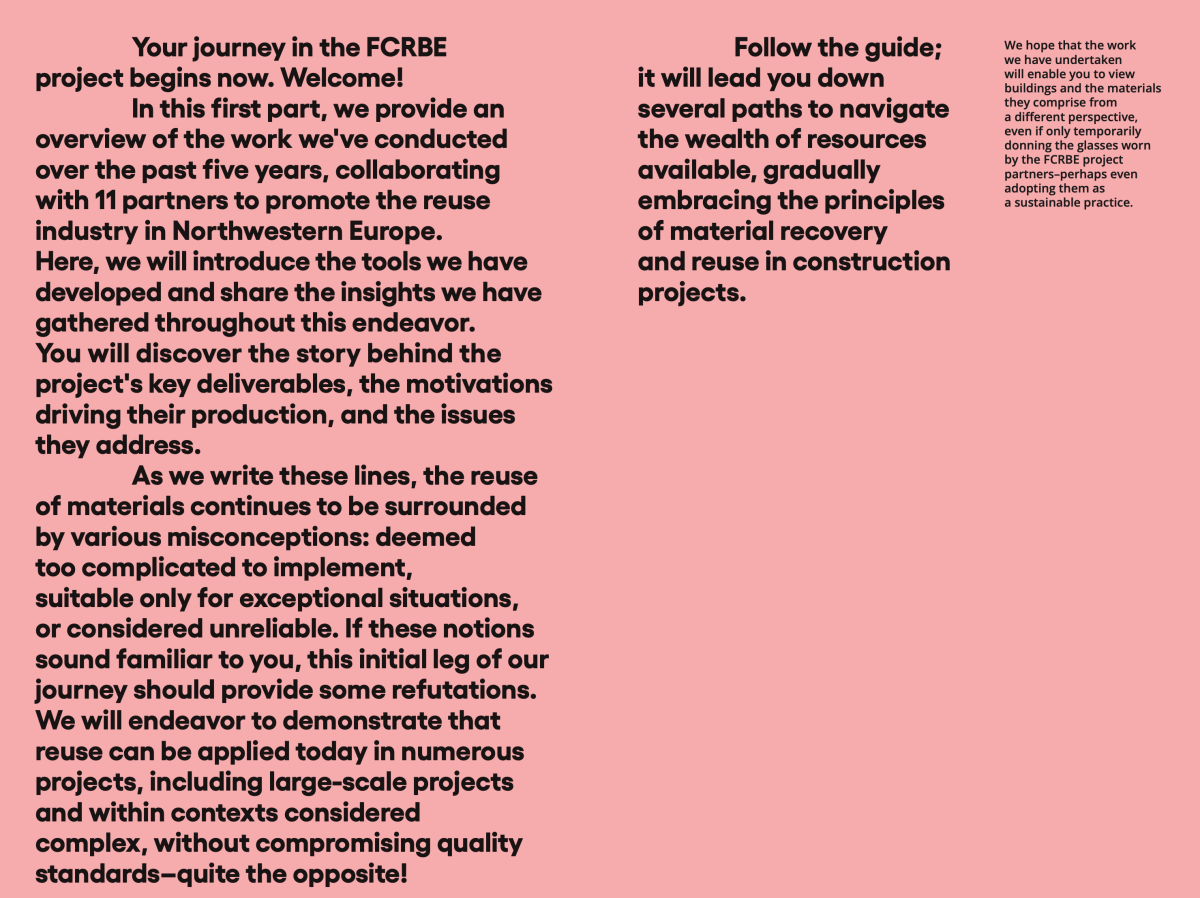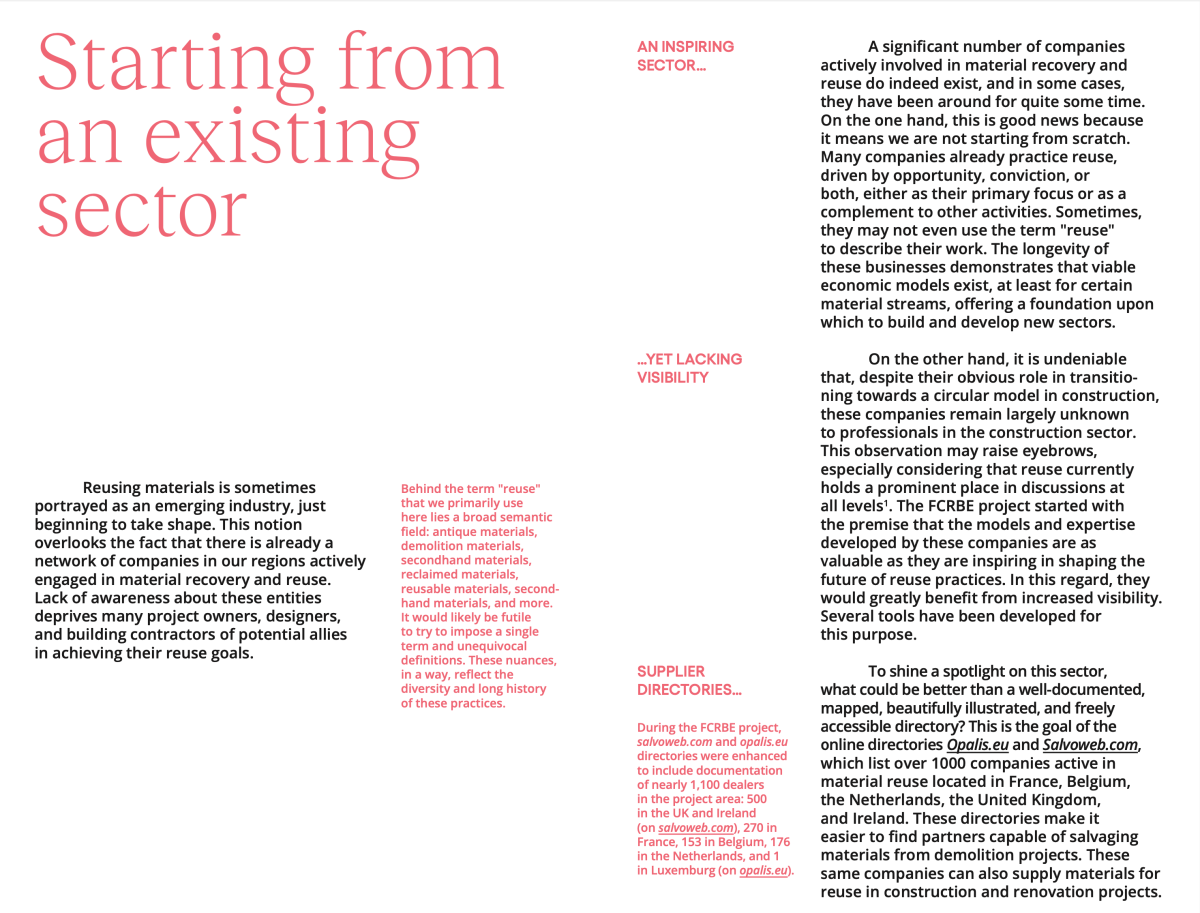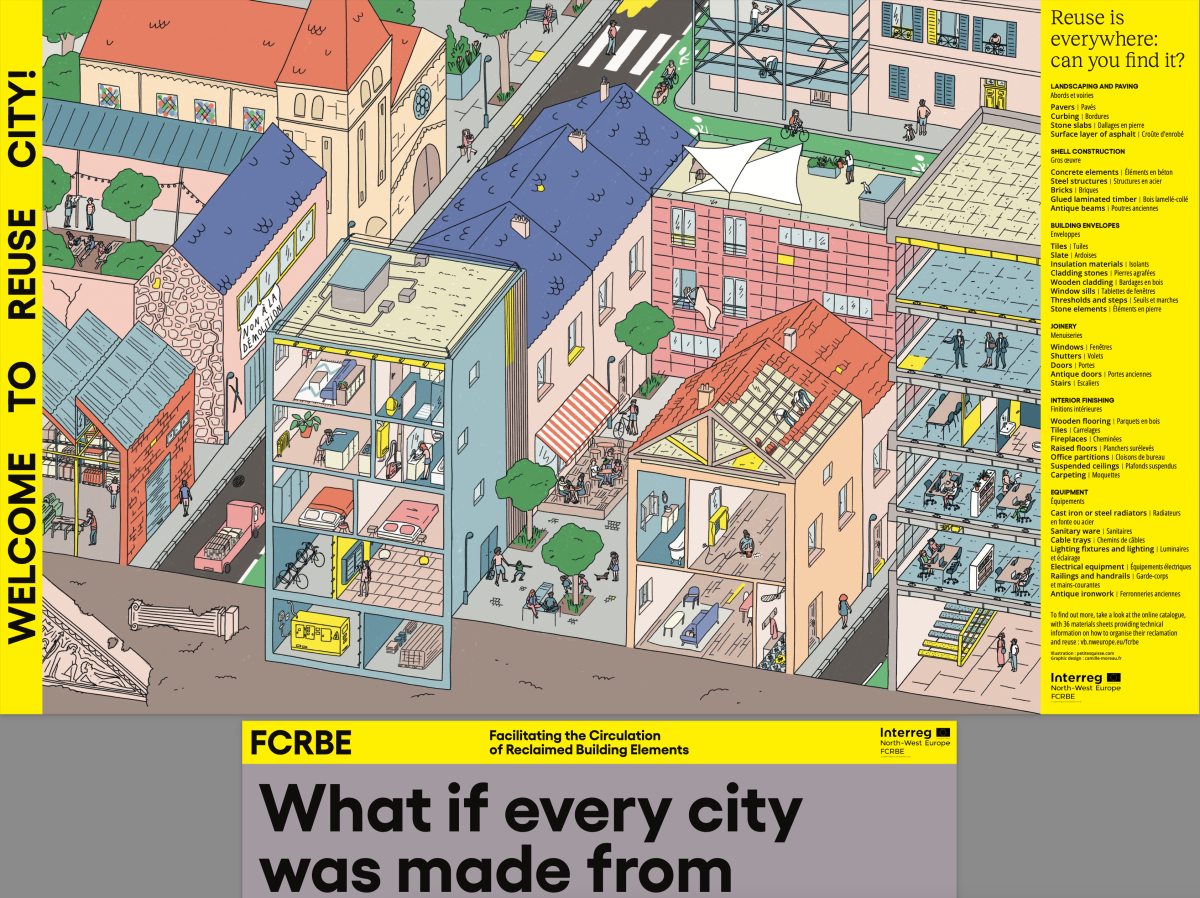Kent, UK
Farewell to the FCRBE project. Bellastock has now published a concluding fifty page pdf entitled 'Facilitating the Circulation of Reclaimed Building Elements: a review of 5 years of methods and experiments in North-West Europe', that sums up the project and contains a myriad of ways aiming to increase the amount of reuse in the construction firmament by 50%. The project took five years in total and more than €6m of ERDF co-funding by EU Interreg in Lille, 40% of the costs were met by the main partners which included Salvo Ltd.
'As we write these lines,' states the review, 'the reuse of materials continues to be surrounded by various misconceptions: deemed too complicated to implement, suitable only for exceptional situations, or considered unreliable. If these notions sound familiar to you, this initial leg of our journey should provide some refutations. We will endeavour to demonstrate that reuse can be applied today in numerous projects, including large-scale projects and within contexts considered complex, without compromising quality standards – quite the opposite!'
Michael Ghyoot, the man in charge, set the FCRBE goals and is a member of Rotor, the Brussels-based reclamation collective, who strung together three established team players consisting of Rotor, Bellastock the Paris architectural collective, and Salvo, the old ersatz trade body which over the past 30 years has been based in Bath, Haute Marne, Northumberland, Galway and more recently in London, Sussex and Kent, and whose first tour of Belgium was reported in SalvoNEWS in 1993. Several Paris and Brussels building research institutions including Duncan Baker-Brown of Brighton University, were also active partners, along with associate members such as the global construction engineering firm Arup, and 1,500 reclamation yards and showrooms in Belgium, France, Ireland, Luxembourg, Netherlands and UK.
The review contains the story of the project and in conclusion states, 'First and foremost, it is essential to avoid romanticising this period: most of the challenges that were present at the beginning of the project still exist in relatively similar terms today. There is still a long way to go before reuse practices become widespread … in Europe … notably, there has been a rise in businesses setting up operations close to urban centres, near construction sites, despite the challenges related to land access.'
This was not echoed in the UK where, since the 2010s city salvage yards have either closed permanently or moved to outlying areas when the over-heated property market up-valued tiny footprints of the many small but useful city reclamation yards which had been established in the regular recessions of the 1970s - 2000s when commercial property prices hit rock bottom and, incidentally, when the UK used to be the prime mover of the global architectural salvage movement.
Many of the written outputs and reports from FCRBE, most of which were written in English with French and Belgian translations, have been added on Salvo's futuREuse (futureuse.co.uk) website and which include:
- the FCRBE concluding review described above
- a 100 page guide on undertaking reclamation audits
- technical papers on 35 different reclaimed building material types
- ways for local authorities to encourage greater reuse
- seven pdf booklets on specific aspects of reclamation including one by Salvo's Moles and Morel entitled 'Fashion for Reclamation' which explores reuse in fashion retail spaces and the connection customers have with reclaimed materials
Salvo's Truly Reclaimed label, which was one of the five main project goals, was launched in Brussels in 2021.
These outputs may be of interest to architects, builders, developers, landscapers, local authorities, policymakers, and of course to salvage dealers of all descriptions.
Contact Salvo if you would like us to send a pack to planners or a local authority. Please send the name of your business, and the email address of the intended recipient.
Contact Salvo
Register on futuREuse to explore the FCRBE outputs
Story Type: News
